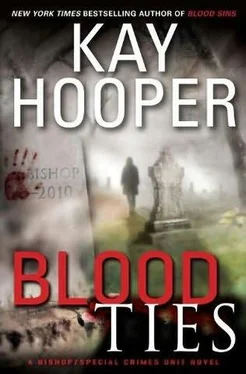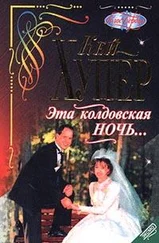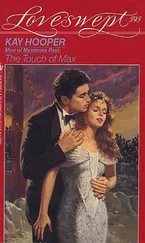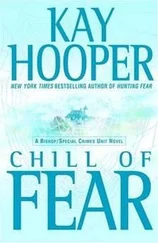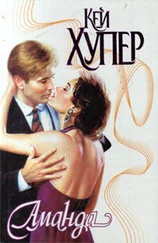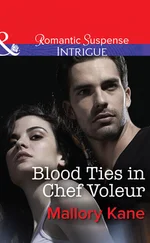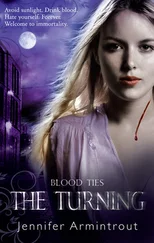“Apparently not.”
Diana was scanning the mountain slopes ringing the valley. “Jesus, it’s a wilderness. Whoever fired those shots could be anywhere. Even if we knew exactly where he was, it’d take us forever to get to that spot.” She paused, then added, “And aren’t we awfully exposed standing here?”
“The shooter’s done for now,” DeMarco said, holstering his weapon.
Diana eyed him. “You read his mind across a valley?”
“No. But he’s done. For now.”
Noting that Quentin was also holstering his gun, Diana followed suit. I’m learning to trust all of them. Or maybe I just trust Quentin . It wasn’t an easy thing for her, trust. It still caught her by surprise when she became aware of feeling it.
Pushing that aside, Diana forced herself to look down once again at the remains of the second victim. Poor thing. What happened to you? Who did this to you?
Unlike Hollis, Diana tended not to see the recently dead. The spirits she saw—most of them what she called guides—were usually messengers of a sort, connecting with her so she could pass on information, so they could show her something she needed to see or in some other way help an uneasy spirit find rest and peace in whatever lay beyond this life.
So she wasn’t worried about being confronted by the spirit of this poor woman. And she was glad about that.
The physical remains were bad enough. Horrible. Her stomach lurched a bit, but the queasy sensation remained a low-grade awareness that she could, if not suppress, at least cope with. For the moment. That, she supposed, was professional progress of a sort. At least she hadn’t disgraced herself by losing her lunch.
Attempting to keep up the professional façade as long as possible, she returned her attention to Hollis and said, “So the shooter was aiming at you? Why were you a target?”
“Beats the hell out of me. But Reese says it could have been either of us.”
“Okay. Why would either of you be a target? I mean, did this guy shoot at two SCU agents specifically? Or one of you specifically?”
“Could be either,” Quentin said. “We’ve made enemies over the years, individually and as a unit. We do try, and mostly succeed, to keep our pictures out of the news, so if you two were recognized as SCU agents I’d be surprised. None of us is wearing an FBI jacket, so that isn’t obvious. We are carrying weapons, though—handguns, and they mark us as likely cops.”
“Yeah,” Hollis said, “but right before you guys got here, we’d pretty much established that the shooter probably wasn’t expecting anybody to be here, because he wouldn’t have expected this victim to be found.”
“You’re assuming the shooter was the murderer,” Diana said.
“I don’t want to assume anything else,” Hollis confessed. “Because we really don’t need some random maniac with a high-powered rifle running around in this mountain wilderness shooting at us while we’re trying to investigate—” She broke off, frowning.
“A less random maniac?” DeMarco murmured.
“You know what I mean. One killer in an area this remote I can just about buy. But not two of them.”
“Unless it’s a tag team,” Quentin offered. “I still say it’s unlikely, but the possibility has to be considered.”
“It’s a possibility I’d rather not think about,” Hollis told him. “Besides, from all I’ve read and heard, that would be seriously unlikely.”
“True. So, what would the killer gain by shooting?”
Diana said, “Maybe he wanted us to know he’s been watching.”
Hollis frowned at her. “But he couldn’t have known we’d be here, that’s the point.”
“Not only here,” Diana told her. She realized she was being stared at and raised her eyebrows at DeMarco. “You think he is—or was—somewhere across the valley, right? And higher up than we are now?”
“Probably. I’m guessing at the trajectory of the shots, but it seems more likely than not.”
“Well, then.”
Quentin shook his head. “Sorry, Diana, but whatever’s so obvious to you, the rest of us seem to be missing.”
“Don’t you guys know where we are?”
“In relation to what? Other than being on the side of one of these mountains, I don’t really—” Quentin frowned suddenly.
Diana was nodding. “If he was across the valley and higher up, then he had a bird’s-eye view of the dump site where the other victim was discovered. We’re not that far away, and the other site faces south, just like this one does. With the shooter across the valley, facing north, he could easily cover both sites. He’s probably been watching all day.”
New York City
FBI Director Micah Hughes stared rather sourly at a famous painting of nymphs frolicking, barely conscious of other visitors to the museum wandering in and out of this room. He was more aware of the uniformed guard who strolled through in seemingly casual but exquisitely precise intervals of eight and a half minutes and even more aware of strategically placed cameras.
The museum knew all the tricks required to guard its treasures.
“Relax, Micah. Anyone would think you were planning to rob the place.”
Hughes didn’t relax. He also didn’t turn his head, and he kept his voice low. “You usually pick less-public meeting spots. And I don’t like the idea of turning up on a security tape talking to you. No offense.”
“None taken. You don’t have to worry about any type of recording. That part of the system is undergoing routine maintenance for the next half hour.”
“And I’m supposed to… trust that information is accurate?” He’d nearly said “take your word for it,” but had managed to stop himself just in time.
“I would, if I were you.” The very distinctive voice was pleasant.
But when Hughes stole a quick glance at his companion, he noted that the half smile on that handsome face was more dangerous than it was reassuring and that those regular features gave nothing else away. The man was tall, slender but broad-shouldered and athletic, and could have been any age between fifty and sixty-five. Whatever his age, his vitality was obvious, and there clung to him an ineffable air of power.
One of the movers and shakers of the world, Hughes knew. He also knew that few people would have recognized the man’s name, and fewer still his face. He had been very successful at keeping a low public profile for a very long time.
Hughes concentrated on what he needed to say. “Look, I’ve done everything you asked of me.”
“Yes, you have. Thank you.”
“And I’ve done everything you asked of me because I believed it was in the best interests of the Bureau and this country to rein in Noah Bishop and his unit of mavericks and misfits.” It was a clear and concise statement, and Hughes was proud of it. He’d been practicing it in his head for weeks.
He had not acted out of malice. He had not acted out of jealousy or resentment. He had not acted out of greed. And he most certainly had not acted out of fear. That was what he wanted to make absolutely clear to the other man.
“Nothing has changed, Micah. Bishop is still a danger. His unit is still a danger.”
“I’m not so sure of that. Not anymore.”
“Why? Because they managed to stop Samuel, killing him in the process?”
“They didn’t kill him.”
“Someone else may have held the knife, but they most certainly destroyed him. And you know it.”
“I don’t know what happened in the Compound, and neither do you. I have Bishop’s report, backed up by his team and by the local chief of police, that Samuel was stabbed to death by one of his followers {see Blood Sins}. No other witness has stepped forward to dispute what happened. I also have boxes of evidence that Samuel was responsible for more murders than I want to think about, including that of the daughter of a United States senator.”
Читать дальше
